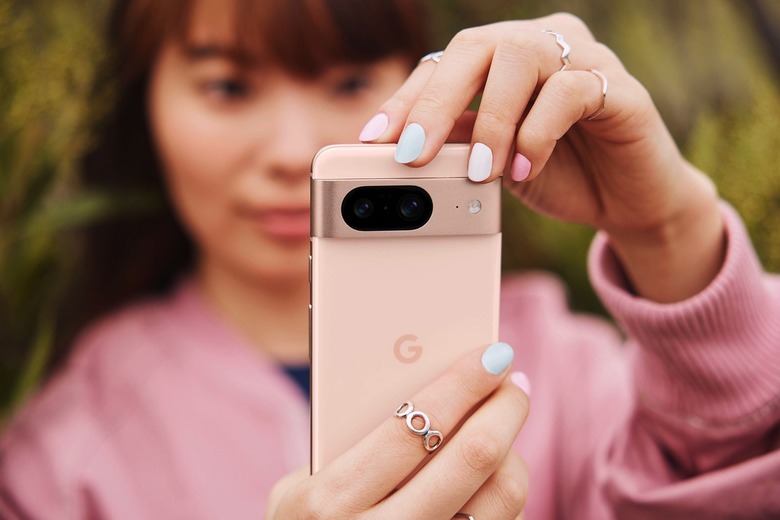Pixel 8 Face Unlock Might Be Just As Good As The iPhone's Face ID, Thanks To AI
The iPhone's Face ID unlock is one of the many reasons I prefer the iPhone over Android. It's a feature only a few Android users have been able to experience. Android vendors had offered 2D face unlock for years before Apple introduced the more sophisticated 3D face recognition feature. But Face ID can unlock everything on the iPhone securely, while 2D face unlock only works to unlock the phone.
Fast-forward to the Pixel 8 launch, and Google introduced its own sophisticated Face Unlock feature. With the help of AI (ML, to be more specific), Google managed to give the Pixel 8 features similar to Face ID on the iPhone. What's strange about it is that Google spent no time addressing the improved functionality during the event, even though the Made by Google presentation was all about the future of AI on Pixel devices.
Face ID requires complex hardware so the phone can see the user's face in 3D and offer secure authentication. You can use Face ID to unlock the iPhone and any apps that support face unlock. That includes banking, contactless payments, health apps, and anything that might hold sensitive data.
The 2D face unlock available on Android phones is restricted to unlocking the screen. A few exceptions exist. Most notably, the Pixel 4 featured similar hardware to Apple's iPhones. The Pixel 4 offered full Face ID-like functionality. But the Pixel 4 was hideous compared to the iPhone's design. And Google quickly abandoned that design on the 5th-generation model.
Face Unlock on Pixel 8 doesn't come with the same hardware the Pixel 4 had. But thanks to Machine Learning (ML) advancements that Google has not addressed on stage, Face Unlock can authenticate users into any app on the Pixel 8 and Pixel 8 Pro, including banking apps.
Google casually mentioned the feature in the blog post announcing the Pixel 8 phones without making a big deal about it:
Google Tensor G3 works with the Titan M2 security chip to protect personal information and make your Pixel more resilient to sophisticated attacks. And now, Face Unlock on Pixel 8 meets the highest Android biometric class, allowing you to access compatible banking and payment apps like Google Wallet.
But that's quite a development for the phone, one that could be a major selling point for the Pixel 8 models. Rather than pushing AI camera features that alter photos profoundly, Google could emphasize this major security breakthrough that uses AI features to securely authenticate users.
So, what's the "highest Android biometric class" that Google mentions? Android Central reminds us of the various classes of security for biometric authentication on Android devices. Class 3 is the strongest, and Class 1 is the weakest.
Face Unlock on Pixel 7 phones is a Class 1 biometric, which makes it risky to unlock anything other than the lock screen. I wouldn't even use it for the lock screen, as that would be a big security risk.
But Face Unlock on the Pixel 8 is now a Class 3 biometric. It can be used for banking apps and contactless payments.
Android Central further explains that Google manages the Biometric Security Program that handles the classification. But that's an Android team handling the certification of phones, not related to the Pixel hardware department. Third parties can and probably will put the Pixel 8's Face Unlock to the test to see if it's as secure as Google says.
That said, Face Unlock seems to be a tremendous upgrade for the Pixel 8, one that Google should be talking more about.
Separately, Apple is working on reducing the Face ID Dynamic Island size by placing hardware components under the display. That's what iPhone rumors say, at least.
